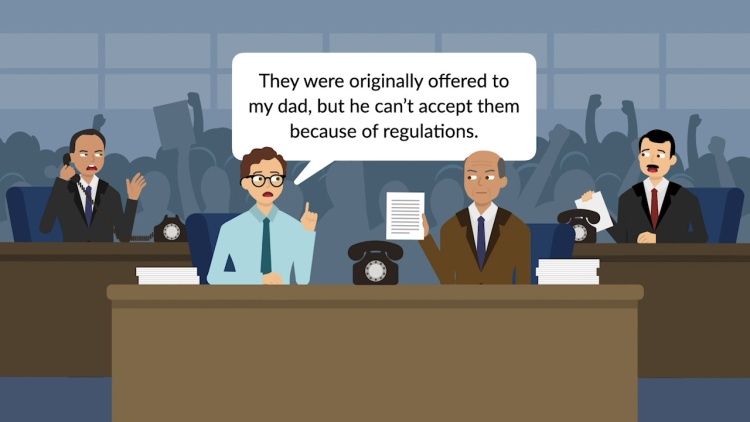Sennott v. Rodman & Renshaw
United States Court of Appeals for the Seventh Circuit
474 F.2d 32 (1973)
- Written by John Caddell, JD
Facts
Jordan Rothbart was a securities dealer and prior to 1958 was an employee of Rodman & Renshaw (Rodman) (defendant), a securities trading firm. Jordan’s father William Rothbart was a partner in Rodman throughout the period at issue here. Around 1960, Jordan began trading on his own account. He befriended a fellow trader, Richard Sennott (plaintiff), and passed along numerous investment recommendations to Sennott which he got from his father. Jordan offered to have an account opened for Sennott at Rodman. Sennott accepted, and Jordan placed orders through Rodman on Sennott’s behalf. Between 1964 and 1966, Sennott purchased around $2 million in securities in this manner, mostly through Jordan and on the investment recommendations of his father. In early 1964, Jordan offered Sennott stock options in a company called Skyline Homes. Sennott agreed to purchase $142,000 worth of these options. Jordan told Sennott that the options were highly confidential and that he could not discuss them with anyone, even William. Sennott complied. He did not meet William until after making the order. The stock options did not exist. Jordan actually deposited the checks in a personal account. In late 1964, Rodman’s managing partner, Vernon Carroll, uncovered evidence of the fraud, and attempted to ask Sennott about it. On William and Jordan’s advice, Sennott refused to discuss the matter with Carroll. When Sennott finally learned that he had been defrauded, he sued Rodman, along with Jordan and William Rothbart. The trial court found against the Rothbarts and against Rodman in the amount of $99,600. Rodman appealed.
Rule of Law
Issue
Holding and Reasoning (Pell, J.)
What to do next…
Here's why 907,000 law students have relied on our case briefs:
- Written by law professors and practitioners, not other law students. 47,100 briefs, keyed to 996 casebooks. Top-notch customer support.
- The right amount of information, includes the facts, issues, rule of law, holding and reasoning, and any concurrences and dissents.
- Access in your classes, works on your mobile and tablet. Massive library of related video lessons and high quality multiple-choice questions.
- Easy to use, uniform format for every case brief. Written in plain English, not in legalese. Our briefs summarize and simplify; they don’t just repeat the court’s language.





